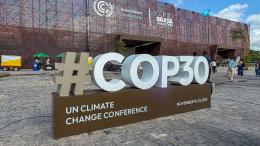On 4 October 2022, UNU will host “The Triple Planetary Crisis: From Issues to Action”, a conversation with Inger Andersen, Executive Director of the United Nations Environment Programme. This event will start at 18:30 in the 2F Reception Hall at UNU Headquarters in Tokyo.
The Fifth Session of the UN Environment Assembly concluded in March 2022, producing vital resolutions that target the world’s most acute environmental challenges, ranging from plastic pollution to the sound management of chemicals and waste. Solutions will remain elusive, however, if these global commitments are not translated into effective action in the countries and contexts where it matters most.
Ms Andersen will join UNU Rector David Malone to discuss the triple planetary crisis (climate change, nature and biodiversity loss, and pollution and waste), its most critical issues, and its impacts in Japan. The conversation will highlight the promising policy mechanisms and solutions taking shape to confront the crisis at international, regional, and national levels.
The UNU Conversation Series aims to foster audience participation; you are encouraged to engage with the speakers during the conversation and at the reception that will follow, where all audience members are invited to enjoy hors d'oeuvres and drinks while exchanging ideas and making new contacts.
Please note that this event will be in English. Advance registration (by 3 October, 16:00 JST) is required.
About the speaker
Inger Andersen is Under-Secretary-General of the United Nations and Executive Director of the United Nations Environment Programme, headquartered in Nairobi, Kenya.
Between 2015 and 2019, Ms. Andersen was the Director-General of the International Union for Conservation of Nature (IUCN).
Ms Andersen has more than 30 years of experience in international development economics, environmental sustainability, strategy, and operations. She has led work on a range of issues including agriculture, environmental management, biodiversity conservation, climate change, infrastructure, energy, transport, and water resources management, and hydro-diplomacy.
Between 1999 and 2014, Ms Andersen held several leadership positions at the World Bank including Vice President of the Middle East and North Africa; Vice President for Sustainable Development, and Head of the CGIAR Fund Council.
Prior to her 15 years at the World Bank, Ms Andersen worked for 12 years at the United Nations, first on drought and desertification, beginning with the UN Sudano-Sahelian Office. In 1992, she was appointed as UNDP’s Water and Environment Coordinator for the Arab Region.
Ms Andersen holds a bachelor’s degree from the London Metropolitan University North and a Master’s Degree in Development Economics from the School of Oriental and African Studies, University of London.



